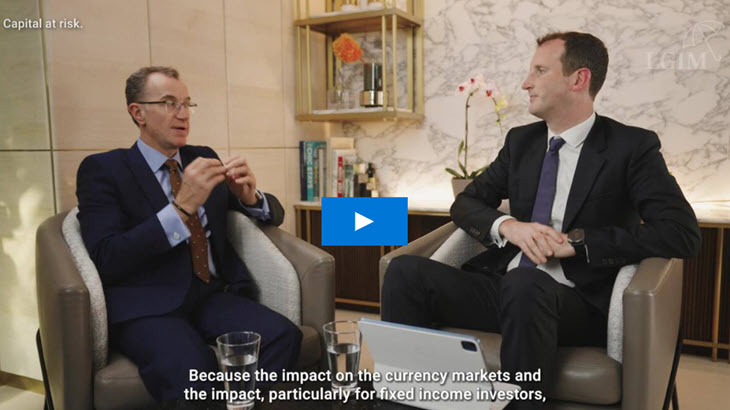What are private market investments and could they benefit DC pension savers?
Private markets refer to assets which aren't listed on exchange markets. In exchange for investing money over the longer term, private markets have the potential to offer an ‘illiquidity premium’.

More than five million[1] DC (defined contribution) pension savers rely on us to act in their best interests when it comes to helping them secure their financial futures. It’s a huge privilege and an even greater responsibility – which is why we’re always examining how we can unlock opportunities to maximise returns for our members. So, could private market investments offer the type of opportunities we’re looking for?
Traditionally, DC pensions have mostly invested in listed assets, which can be easily bought and sold in financial markets. These typically include bonds, shares and exchange-traded funds.
Private markets refer to assets which aren’t listed on exchange markets. They include a wide range of investments, but mainly refer to private equity and venture capital, private credit, infrastructure, and real estate. Private market assets can’t easily be bought and sold, and so they are often referred to as illiquids.
The illiquidity of private market assets means they’re typically suited to investors with longer-term time horizons – such as pension schemes. In exchange for investing money over the longer term, private markets have the potential to offer an ‘illiquidity premium’. This refers to the additional return received to compensate for tying up capital in an asset for a longer period – sometimes as long as a decade or more.
Illiquid investments such as private market assets may also help to diversify portfolios, which can help mitigate long-term investment risks.
However, private market assets are more complex to invest in and manage and this can mean higher fees compared with traditional assets. Therefore, it is important that investors consider the potential value that investing in private markets brings to an overall portfolio rather than considering fees in isolation. In order to do this, it is critical that appropriate governance and operational requirements are in place to manage these complexities when constructing a portfolio.
What could private markets offer DC pension savers?
We have offered some private market asset classes to DC arrangements for many years, and we believe that investment in high-growth sectors such as science and technology, clean power and affordable homes offers a potential opportunity to boost the UK and global economy, as well creating potential value for the millions saving for their retirement.
Private markets can also seek to deliver ESG benefits, in some cases delivering real-world impact alongside public markets within a DC investment strategy. For example, by investing in a clean power private market fund, a pension scheme could directly contribute to the development of a wind or solar farm, contributing to the clean energy transition. Another example is affordable housing – a scheme could invest directly in the delivery of affordable homes for local communities, providing a powerful contribution to society while seeking to deliver better overall financial outcomes for members.
At L&G, we recognised the potential for private markets investments within DC strategies, and the benefits they could bring for pension savers, some time ago and have been investigating their inclusion in our investment strategies.
Momentum appears to be growing across the industry: in February this year, an expert panel comprising pensions and venture capital specialists was formed to examine how retirement funds might be directed into British start-up projects.[2] This followed the signing of the UK Government’s Mansion House Compact in 2023[3] where 10 leading UK pension providers, including Legal & General, committed themselves to allocating 5% of assets in their default pension funds to unlisted equities by 2030.
Our focus on delivering value for members
In general, despite illiquid assets costing more to invest in than liquid assets, we believe that in many cases, private markets have the potential to deliver greater overall value for members through a combination of diversification and access to a wider range of investment opportunities.
Therefore, with appropriate risk-management safeguards around governance and costs, we’re pleased to be involved in conversations and proposals that drive forward the evolution of default investment strategies in the DC pensions market to seek to deliver better member outcomes.
We believe that by making investments in a broader range of assets accessible to members, we can unlock opportunities that could benefit their pension pots as well as in some cases, seeking to providing wider social and economic benefits.
For more information on our research and thought leadership on private markets, listen to John Roe, LGIM’s Head of Multi-asset Funds, and Jesal Mistry, Head of DC Investment Proposition and Governance discuss the pros and cons: https://audioboom.com/posts/8409565-will-illiquid-investments-help-or-hinder-dc-pensions.
It should be noted that diversification is no guarantee against a loss in a declining market.
[1] LGIM figures at August 2023. See page 17, Legal & General Group PLC Interim Management Report 2023 Stock Exchange Release: https://group.legalandgeneral.com/media/bg3c0tzs/hy23-press-release_analyst-pack.pdf.
[2] CityAM story 13 February 2023: Top City investors unite in plan to unlock funding for British start-ups following Hunt's Mansion House reforms on city.
[3] UK Government news story, 10 July 2023: www.gov.uk/government/news/chancellors-mansion-house-reforms-to-boost-typical-pension-by-over-1000-a-year
Key risks
The value of any investment and any income taken from it is not guaranteed and can go down as well as up, and investors may get back less than the amount originally invested.
Whilst we have incorporated ESG information into investment decision making and stewardship practices, there can be no assurance that any responsible investing goals will be met.




